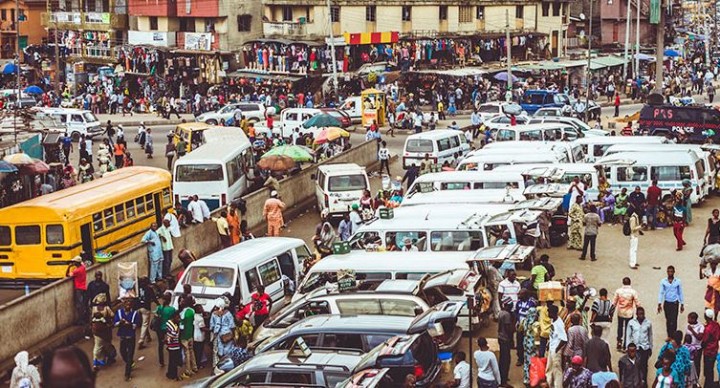-
Tips for becoming a good boxer - November 6, 2020
-
7 expert tips for making your hens night a memorable one - November 6, 2020
-
5 reasons to host your Christmas party on a cruise boat - November 6, 2020
-
What to do when you’re charged with a crime - November 6, 2020
-
Should you get one or multiple dogs? Here’s all you need to know - November 3, 2020
-
A Guide: How to Build Your Very Own Magic Mirror - February 14, 2019
-
Our Top Inspirational Baseball Stars - November 24, 2018
-
Five Tech Tools That Will Help You Turn Your Blog into a Business - November 24, 2018
-
How to Indulge on Vacation without Expanding Your Waist - November 9, 2018
-
5 Strategies for Businesses to Appeal to Today’s Increasingly Mobile-Crazed Customers - November 9, 2018
CNBC Report | Here’s Why We Should be Worried About Nigeria’s Economy
Nigeria’s economy has been hit hard by a global slump in oil prices, and further harmed by militant attacks on pipelines in the oil-producing Niger Delta region that have dropped production to about 1.5 million barrels a day from around 2.2 million barrels.
Advertisement
Many declines, apart from the oil sector, were due to Nigerian government policy, Ashbourne said.
It is also having an adverse impact on oil exporting nations, as well as the tax receipts their governments depend upon, and in the case of one country facing insurrection, power outages which impact on other parts of the economy still limping.
The crisis was compounded by President Muhammadu Buhari’s unorthodox decision to prop up the naira at 197-199 to the dollar causing foreign currency reserves to tank. It’s a terrible reality for millions of Nigerians who face increasing difficulty in putting food on the table and meeting basic everyday financial obligations.
It was the second consecutive quarter to witness record-low levels of foreign capital importation into the economy and also the largest year-on-year decrease. In addition, in the second quarter there was considerable uncertainty surrounding future exchange rate policy, which may have deterred investors.
The slowdown was recorded across many sectors in a sign that Africa’s economic giant is wrestling with deeper structural issues than just the low price of crude.
Crude oil sales amount to about 70% of the government income and that has been greatly affected as the price of oil has fallen from the highs of $112 a barrel in 2014 to below $50 a barrel at the moment.
The future is really, really dark, predicts John Ashbourne, economist for the research firm Capital Economics.
“We are looking at a likely low point”, said Razia Khan, Africa economist at Standard Chartered Bank. There are too many of us to keep on relying on oil. New figures released by the country’s National Bureau of Statistics (NBS) have officially confirmed that Nigeria is indeed in a recession.
It plans to borrow as much as $10 billion from debt markets, with about half of that coming from foreign sources and is seeking advisers to manage a $1-billion Eurobond it intends to offer this year.
Kale said economically active population or working age population such as persons between 15 and 64 years increased from 106.00 million in first quarter to 106.69 million in second quarter of 2016. Whilst a negative growth was expected, the size of the decline is of greater importance with Bloomberg Consensus and Vetiva estimates varying as wide as -1.6% and -2.9% respectively.
Advertisement
As these trends continue, the outlook for the rest of the year is that the Nigerian economy will beat the International Monetary Fund prediction of -1.8% for the full year 2016.





























